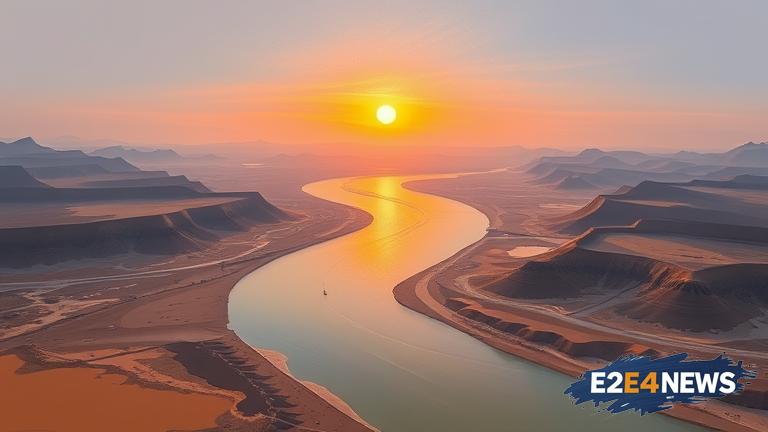The Indus Delta, a vital component of Pakistan’s ecosystem, is facing an unprecedented crisis. The delta, which was once a thriving and fertile region, is now experiencing a rapid decline due to various environmental and human-induced factors. The primary cause of this decline is the reduction in freshwater inflow from the Indus River, which has been exacerbated by the construction of dams and barrages upstream. This has resulted in increased salinity and erosion of the delta’s soil, making it difficult for crops to grow and for people to access clean drinking water. The situation is further complicated by climate change, which is causing sea levels to rise and altering precipitation patterns. As a result, the delta is sinking and shrinking at an alarming rate, with some estimates suggesting that it has lost over 80% of its original area. The consequences of this decline are far-reaching and devastating, with millions of people dependent on the delta for their livelihoods facing an uncertain future. The fishing industry, which is a significant contributor to the local economy, is also under threat due to the decline of fish populations. Furthermore, the loss of mangrove forests, which provide a natural barrier against storms and erosion, is leaving coastal communities vulnerable to the impacts of climate change. The Pakistani government has been criticized for its lack of action in addressing the crisis, with many arguing that more needs to be done to protect the delta and its inhabitants. In recent years, there have been efforts to restore the delta’s ecosystem, including the planting of mangroves and the construction of seawalls. However, these efforts are often hindered by a lack of funding and resources. The international community has also been called upon to provide assistance, with many organizations and countries offering support to help mitigate the effects of the crisis. Despite these efforts, the situation remains dire, and it is unclear whether the delta can be saved. The decline of the Indus Delta is not only an environmental disaster but also a humanitarian crisis, with millions of people facing displacement and poverty. The Pakistani government and the international community must take immediate action to address the crisis and protect the delta and its inhabitants. This includes increasing funding for conservation efforts, implementing policies to reduce pollution and protect the delta’s ecosystem, and providing support to affected communities. The fate of the Indus Delta and its inhabitants hangs in the balance, and it is imperative that action is taken to prevent a catastrophic outcome. The world is watching as the delta sinks and shrinks, and it is up to us to ensure that something is done to stop it. The consequences of inaction will be severe, with the potential for widespread poverty, displacement, and environmental degradation. It is time for the Pakistani government and the international community to take responsibility and work towards saving the Indus Delta. The clock is ticking, and every minute counts. The future of the delta and its inhabitants depends on it. The Indus Delta is a vital component of Pakistan’s ecosystem, and its loss would be a devastating blow to the country’s environment and economy. The delta’s decline is a wake-up call for the world, highlighting the need for urgent action to address the impacts of climate change and environmental degradation. It is time for us to come together and work towards a common goal: saving the Indus Delta and protecting the future of our planet.
